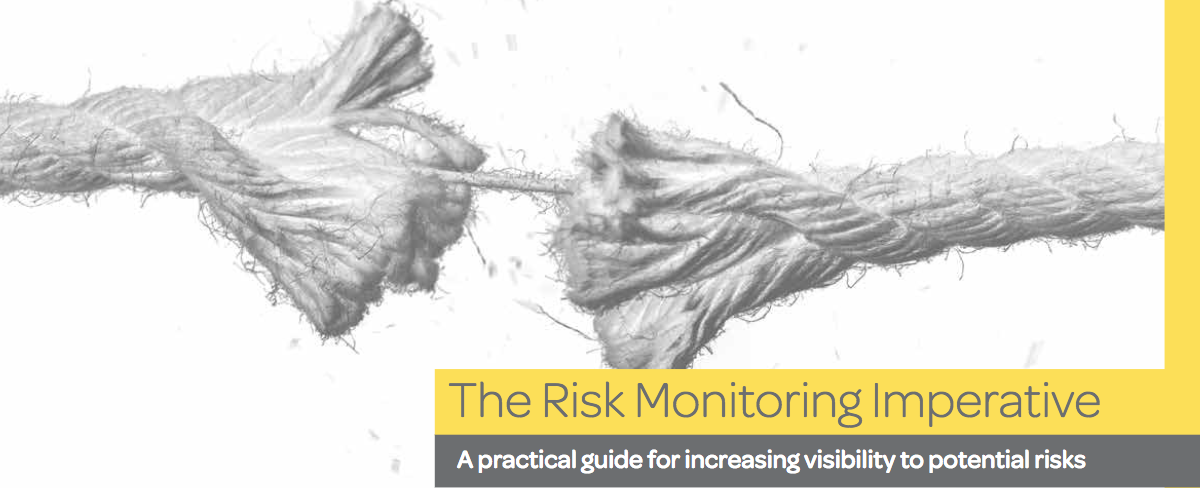
The Risk Monitoring Imperative
Organisations today face an evolving array of risks – and corporate boards and executive leaders are feeling the pressure. According to a global survey of board members and C-suite executives, “The impact of the U.K. Brexit vote, increased volatility in commodity markets, polarisation surrounding the recent U.S. presidential election, terrorist events, asset bubbles in China, continued discussion about fair wages and income equality, and ongoing instability in the Middle East” has resulted in elevated concerns about business risk in 2018.
Moreover, companies increasingly rely on third parties to conduct business – from complex, globallydistributed supply chains to extensive networks of clients, partners, or agents working on their behalf. How vast are these networks?
– 40% of companies oversee 1,000 third parties annually
– 29% manage more than 5,000 third-party relationships
And those numbers don’t include customers. As a result, companies need a risk mitigation strategy that goes beyond traditional due diligence for on-boarding suppliers and third parties. The 2017 Anti-Bribery & Corruption Benchmarking Report, issued jointly by Kroll® and Ethisphere®, found that “More than half (55 percent) of respondents report that they identified legal, ethical, or compliance issues with a third party after due diligence had been conducted.” Ongoing monitoring can help you build a more complete picture of risk exposure—and proactively mitigate risk.



